Veranstaltungsarchiv Thomas Mann House
Juni 2024
Oper & Demokratie: Opera and the Intersections of Democracy
Zoom

Info
Nehmen Sie teil an einer Diskussion zur Schnittstelle von Oper und Demokratie, veranstaltet vom Black Opera Research Network (BORN) in Zusammenarbeit mit dem Thomas Mann House im Rahmen unserer gleichnamigen transatlantischen Konzert- und Gesprächsreihe.
Diese Veranstaltung findet auf englischer Sprache statt. Weitere Informationen finden Sie hier.
RSVP hier
Teilnehmer:innen
Philip Miller, composer of Nkoli: The Vogue Opera (Johannesburg, 2023)
Tshegofatso Moeng, musical director of Nkoli: The Vogue Opera (Johannesburg, 2023)
Allison Smith, Civic Engagement Coordinator of Virginia Opera
Kai Hinrich Müller, convenor of Opera & Democracy: Transatlantic Conversations & Concerts (Cologne University of Music and Dance).
Moderator:innen
Joy Calico, University of California, Los Angeles (UCLA)
Joshua Tolulope David, University of Toronto
Partner
Diese Veranstaltung wird vom Black Opera Research Network in Zusammenarbeit mit dem Thomas-Mann-Haus präsentiert.
"Slime Molds and Seasteads"
Goethe-Institut Los Angeles (1901 W 7th St Suite A/B, Los Angeles, CA 90057)
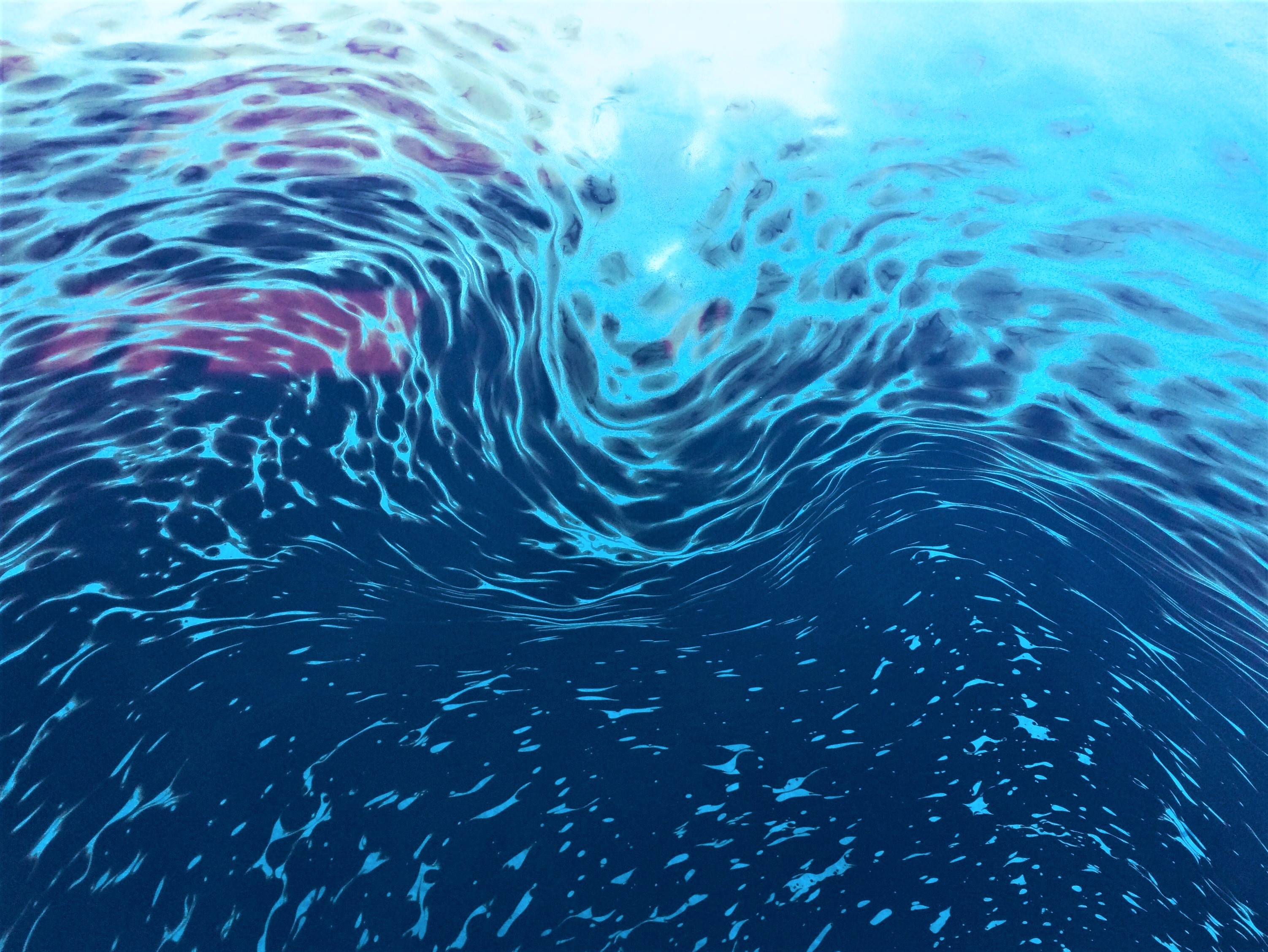
Info
Das Goethe-Institut LA und das Thomas Mann House Los Angeles laden zu einer Diskussion zwischen der Schriftstellerin und Musikerin Claire L. Evans, Herausgeberin von Terraform: Watch/Worlds/Burn, einer Anthologie mit technologischen Spekulationen aus der nahen Zukunft, und der Autorin und Thomas Mann Fellow 2024 Theresia Enzensberger. In einem moderierten Gespräch mit Sherryl Vint, Professorin und Direktorin von Speculative Fiction and Cultures of Science Programm an der University of California, Riverside werden die beiden über technologische Spekulationen, mögliche neue Zukünfte und die Politik der Innovation aus transatlantischer Perspektive diskutieren.
*Diese Veranstaltung findet in englischer Sprache statt*
In her 2022 novel Auf See (At Sea), nominated for the German Book Prize, author Theresia Enzensberger tells a story about utopian promises of new communities and happiness in the face of doom. The main character, Yada, grows up as a citizen of a floating city in the Baltic Sea. Her father, a libertarian tech entrepreneur, has designed the seaside town as a salvation from the chaos in which the rest of the world is sinking. Against the backdrop of current developments, such as “California Forever,” a plan for a future city for which a group of tech billionaires quietly purchased 60,000 rural acres of land in Solano County, utopian visions like in Enzensberger’s novel are not limited to SciFi literature anymore. Writer and artist Claire L. Evans recently published a volume titled Terraform: Watch/Worlds/Burn, an anthology of near future science fiction from VICE’s acclaimed, innovative digital speculative story destination. The book shows the predictive capacity of science fiction and seeks “new, vivid, and visceral ways to depict the future, translating the decay and anxiety that surround us into something else, something unexpected, something that burns like a beacon and upends the conventional ideas of where we’ll end up next.”
The conversation will be moderated by Sherryl Vint, Professor and Director of the Speculative Fiction and Cultures of Science program at the University of California, Riverside. Her research focuses on speculative fiction, especially relationships with science and technology. In her publications she explores how science fiction can give us tools for conceptualizing and perhaps shaping the ways that science and technology have an impact on daily life. Together they will talk about the benefits of technological speculations, potential new futures and the politics of innovation through a transatlantic literary lens.
Teilnehmer:innen
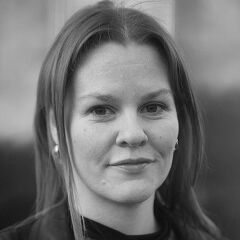
Theresia Enzensberger studied film at Bard College in New York and is a writer of prose, essays, reportage, and criticism. In 2014 she founded BLOCK Magazin which was named “best newcomer magazine” at the 2016 Lead Awards. In 2017, her first novel Blaupause (Blueprint)was published by Hanser Verlag. It was translated into several languages and awarded the Alfred Döblin Medal. Her recent novel Auf See (At Sea), published in 2022, was nominated for the German Book Prize. Enzensberger is a 2024 Thomas Mann Fellow.

Claire L. Evans is a writer and musician exploring ecology, technology, and culture. She is the singer of the Grammy-nominated pop group YACHT, co-founder of VICE’s imprint for speculative fiction, Terraform, and co-editor, with Brian Merchant, of the accompanying anthology Terraform: Watch Worlds Burn (MCD Books, 2022). Her writing has appeared in MIT Technology Review, VICE, Rhizome.org, The Verge, Pioneer Works’ Broadcast, The Guardian, the Los Angeles Review of Books, Document Journal, Eye on Design, and Aeon, among others. She is a 2024 MacDowell Fellow.

Sherryl Vint is Professor of Media and Cultural Studies and Chair of the Department of English at the University of California, Riverside, where she founded the Speculative Fictions and Cultures of Science program. She has published widely on science fiction, including, most recently, Biopolitical Futures in Twenty-First Century Speculative Fiction(2021), Science Fiction: The Essential Knowledge, and Programming the Future: Speculative Television and the End of Democracy (2022, co-authored with Jonathan Alexander). She was a founding editor of Science Fiction Film and Television and is an editor for the journal Science Fiction Studies and the book series Science in Popular Culture.
Partner
Eine Veranstaltung in Kooperation mit dem Goethe-Institut Los Angeles und dem American Council on Germany.

Music of Exile: Memory and transformation in the work of German and Iranian composers
Thomas Mann House (1550 N San Remo Dr, Pacific Palisades, CA 90272)

Info
Gemeinsam mit der Da Camera Society lädt das Thomas Mann House zu einem abendlichen Konzert und Gespräch ein, das sich um das Werk deutscher und iranischer Komponisten und deren durch Exilerfahrungen geprägtes musikalisches Schaffen im Kontext politischen Widerstands und sozialem Wandel dreht. Das Gespräch findet zwischen 2024 Thomas Mann Fellow Aida Baghernejad, der Musikwissenschaftlerin Joy Calico (UCLA Herb Alpert School of Music) und dem Musikkritiker Alex Ross (The New Yorker) statt und wird von dem Musikwissenschaftler Julius Reder Carlson moderiert. Im Konzert erklingen Hanns Eislers Vertonungen von Berthold Brechts Gedichten und Streichmusik von Gity Razaz, Nasim Khorassani, Adib Ghorbani und Hesam Abedini.
*Diese Veranstaltung findet in englischer Sprache statt*
The experience of exile is often characterized by states of uncertainty and the challenge of adapting to new social, cultural, and political circumstances. In offering opportunities to process and reflect on moments of intense crises, music and art play can play key roles in this experience. Realities of exile vary widely: from forced displacement due to conflict or persecution to voluntary migration in search of better opportunities. In many cases, exile entails a rupture with familiar surroundings and the need to navigate unfamiliar territories. As a means of processing these realities in times of crisis, music and art can offer hope and solidarity, as well as a space for emotional release and reflection, often fostering a sense of community and shared resilience. Across different cultures, composers and musicians have drawn inspiration from their own exile journeys, and in their music, one can often hear the echoes of longing, resilience, and hope.
What roles can art play in the exile experience? In conceiving of – and potentially realizing – a future that precludes it? In this concert-discussion, music serves as a point of departure for exploring ways in which exiled creators negotiate between rejection of and nostalgia for ‘home’; cynicism and idealism with respect to the sociopolitical future; lamentation of personal victimhood and responsibility for collective rebirth.
Bringing the experiences of 1940s-era German refugees into dialog with those of contemporary Iranian exiles, the event strives to shed new light on the experiences of individuals from two iconic communities that have found refuge in LA and to complicate narratives about the sociopolitical tragedies from which they fled.
The concert portion of the event will include selections from Hanns Eisler’s Hollywooder Liederbuch and music for strings by Gity Razaz, Nasim Khorassani, Adib Ghorbani, and Hesam Abedini. The conversation will feature music critic and 2024 Thomas Mann Fellow Aida Baghernejad, music scholar Joy Calico (UCLA Herb Alpert School of Music), and renowned music critic Alex Ross (The New Yorker). The conversation will be moderated by musicologist Julius Reder Carlson.
Programm
Hanns Eisler
Gity Razaz
Spellbound
Candenza for the Once Young
Nasim Khorassani
Growth
Adib Ghorbani
Flowers of Nostalgia (Golhay-e Ghorbat)
Hesam Abedini
O n O r W y
Hesam Abedini
'End of Shâhnâmeh' (Ferdowsi)
Adib Ghorbani
'How Are We Still Alive' (Ali Asadollahi)
SPELLBOUND - Gity Razaz
Spellbound for solo viola has the intimate quality of a reminiscing soliloquy. Textures and soundscapes weave in and out of an original melody that conjures the improvisatory lyricism of traditional Persian music. I was particularly inspired by the mourning and sul ponticello sound quality that is inherent to Persian instruments such as the Ney and Kamanche. Spellbound was commissioned by Maggie Snyder for the VIOLA2020 project in celebration of the 100th anniversary of the 19th amendment establishing women’s right to vote.
CADENZA FOR THE ONCE YOUNG - Gity Razaz
This short violin piece is about my grandparents, specifically about my grandmother. After the death of my grandfather, my grandmother (or Mamani, as we call her) moved to the U.S. to be close to her family. She and Babaee (my grandfather) were living in Iran all alone after their children immigrated to the US and Europe, so it was only natural for Mamani to come live here after her husband of 60+ years had passed. However, after a short period of five years, Mamani decided to move back to Iran as she was homesick, missed visiting Babaee’s resting place and all their memories. This piece is dedicated to their lasting love and decades of companionship.
GROWTH - Nasim Khorassani
This is a cell constructed by B, C, D, and E flat, growing and expanding. Growth has elements from Iranian traditional music influencing its form, harmony, trills, and long introverted melodies, but these are the characteristics that I discovered later.
FLOWERS OF NOSTALGIA (GOLHAY-E GHORBAT) - Adib Ghorbani
The work’s title is derived from the Iranian radio program “Flowers of Nostalgia”. This program aired throughout the 90s, broadcasting both Iranian traditional and Iranian pop music. This string quartet is inspired by the melodic content of those tunes - primarily stepwise melodies full of grace notes, vibrations and nuanced dynamics. The flowers of nostalgia now bloom here, carrying with them the scents of Iran.
O n O r W y - Hesam Abedini
I composed this relatively short string quartet piece to reconstruct my memory of the beginning of the 2009 Green Movement in Iran. In the afternoon after the presidential election, people took to the streets, and almost everywhere in Tehran, you could hear the sound of protests. I remember waking up to the whisper-like sounds of the protesters. In those moments, we all experienced a mixture of fear, uncertainty, excitement, and hope. We were all hopeful, at least at the beginning. I left Iran about eight months later, but the feeling that stayed with me was hope. Every time I remember those moments, hope is the first feeling that envelops my soul. Therefore, I chose a classical Persian modal system that, in the memory of the Iranian people, is associated with hope. Mâhur is a Dastgah (modal system) that includes a Gusheh (subsystem) named Châhâr Pâreh (four-part), based on a classical Persian poetic rhythm with a repetitive short-long syllabic pattern: Short-Short-Long-Short-Long (x4). I chose this specific Gusheh of Mâhur because of its repetitive rhythmic component. The words that are sung are meaningless, composed of short or long syllables set to the music in a way that sometimes the combination of them may sound meaningful to a Persian-speaking audience. This part imitates how, on that afternoon, we could hear the protesters from a distance at home and how excited and passionate we were to join them.
‘END OF SHÂHNÂMEH’ - Hesam Abedini
Setting of this 11th-century Shâhnâmeh text by Ferdowsi:.
They hide all the treasures
They strive yet yielding their achievements to the foe
••
No faith has remained in this world
The tongues and souls are brimming with tyranny
••
They shed blood for the worldly gains
Bad times seem halcyon
••
They seek their own profit at the expense of others
Using “religion” as their pretext
‘HOW ARE WE STILL ALIVE’ - Adib Ghorbani
Protest song from Women Life Freedom movement. Setting of a poem by Ali Asadollahi.
Teilnehmer:innen

Aida Baghernejad is a journalist who studied media studies in Berlin, Barcelona, and London. Her work focuses on how cultural products such as music, film, and social media content influence the socio-political state of the world. In addition to numerous contributions for Die Zeit, Der Tagesspiegel, Missy Magazine, and others, she also co-hosts the podcast 55 Voices for Democracy, a collaboration between the Thomas Mann House, the Goethe-Institut, dublab radio, and the Los Angeles Review of Books.

Joy Calico joined the faculty at UCLA in August 2023, where she is Professor of Musicology at the Herb Alpert School of Music and affiliated faculty in Jewish Studies. She has published monographs on two luminaries of the Austro-German diaspora in Los Angeles: Bertolt Brecht at the Opera (2008) and Arnold Schoenberg’s A Survivor from Warsaw in Postwar Europe (2014), both with University of California Press. She is a member of the international working team of the Black Opera Research Network (BORN). Her current projects include a book about operatic scene types in 20th- and 21st-century opera based on Kaija Saariaho’s L’amour de loin, and a co-edited volume entitled Childhood and the Operatic Imaginary since 1900.
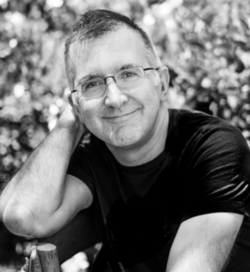
Alex Ross has been the music critic of The New Yorker since 1996. His first book, The Rest Is Noise: Listening to the Twentieth Century, won a National Book Critics Circle Award and was a finalist for the Pulitzer Prize. His second book, Listen to This, is a collection of essays. His latest book is Wagnerism: Art and Politics in the Shadow of Music, an account of Wagner’s vast cultural impact. He has written often about Thomas Mann and the émigré community in L.A. for The New Yorker. He was awarded with a MacArthur Fellowship and the Belmont Prize.
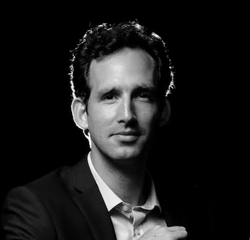
Julius Reder Carlson is Associate Professor of Music and Artistic Director of The Da Camera Society at Mount Saint Mary’s University, Los Angeles and co-founder of the Santa Monica Youth Orchestra (aka Sounds Like LA). His recent publications explore the transnational resonances of the South American Nueva Canción, particularly the work of Cold War-era singer-songwriters Atahualpa Yupanqui and Wolf Biermann.
Partner
This event is a collaboration between the Thomas Mann House Los Angeles and the The Da Camera Society.
Nourishing Justice
Thomas Mann House (1550 N San Remo Dr, Pacific Palisades, CA 90272)

Info
Das Thomas Mann House lädt zu einem Gespräch über die Schnittstelle von ökologischem Rassismus, Ernährungsgerechtigkeit und gemeinschaftlichem Empowerment in den Garten ein. Die Journalistin, Autorin und 2024 Thomas Mann Fellow Ciani-Sophia Hoeder diskutiert mit Jamiah Hargins, dem Gründer von „Crop Swap LA“ und Pionier der urbanen BIPOC-Landwirtschaft und Gemeindeentwicklung in Los Angeles.
*Diese Veranstaltung findet in englischer Sprache statt*
Teilnehmer:innen
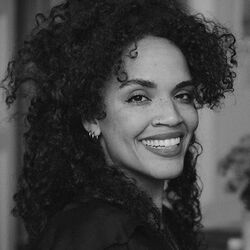
Ciani-Sophia Hoeder is a journalist and author from Berlin. She studied journalism and politics in Berlin and London. In 2019, she founded the online magazine RosaMag, which addresses a variety of challenges faced by Black individuals in German-speaking countries. In her work, Hoeder celebrates Blackness rather than problematizing it. In 2020, RosaMag was nominated for the Grimme Online Award, and in 2021, Hoeder received the Golden Blogger Award. Her debut book Wut & Böse was published with hanserblau in 2021. She is a 2024 Thomas Mann Fellow.

Jamiah Hargins is the Founder and Executive Director of Crop Swap LA. He worked as a stock and options trader in Chicago, where he also participated in a community garden. In Brazil, Hargins managed a social enterprise that leveraged rural agriculture and urban business to sustain an orphanage. Energized by the experience, and seeing first-hand what creative, mission-driven businesses can accomplish, he returned to the U.S. to study public policy at Columbia University and identify opportunities for impact. Along the way, he worked as an executive headhunter in the education field—a position that he says became excellent training for his work at building and managing Crop Swap LA.
Student Council on "Democracy and Vulnerability" – mit Ajuan Mance
Online

Info
Das Wende Museum, dublab radio, und das Thomas Mann House laden Sie ein zur Juni Folge unserer monatlichen Interviewreihe zum Thema „Democracy & Vulnerability.“ Wie sollte eine Demokratie mit ihren eigenen Schwachstellen umgehen? Wie müssen sich Demokratien entwickeln, um erfolgreich mit den weltweit zunehmenden ökologischen Krisen, geopolitischen Spannungen, wirtschaftlichen Ungleichheiten und Kulturkriegen umzugehen? Wie viel Verwundbarkeit kann eine Demokratie ertragen? Der Gast für das Juni-Programm ist Künstlerin Ajuan Mance.
*Diese Veranstaltung findet auf englischer Sprache statt*
The Student Council consists of a team of highly engaged, talented, and diverse undergraduate and graduate students who invite prominent guest speakers to discuss topics relating to society, politics, culture, and art. In conversation with academics, journalists, politicians, and artists, the students will explore the various threats to democratic institutions and principles worldwide, as well as strategies to potentially overcome these threats.
June Speaker
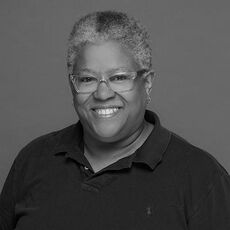
Ajuan Mance is a Professor of African American literature at Mills College in Oakland, California as well as a writer and artist. Throughout her comics and illustrations she uses the elements of humor and bright colors to explore race, gender, and power, and the people and places in which they intersect. Her work has appeared in a number of digital and print media outlets, including most recently The Women’s Review of Books, Blavity.com, BET.com, Transition Magazine, Buzzfeed.com, KQED.org, The San Francisco Chronicle, NYTimes.com, KPIX News, and Publisher’s Weekly.
Watch our May interview with internationally renowned artist and educator Catherine Opie
Der Student Council
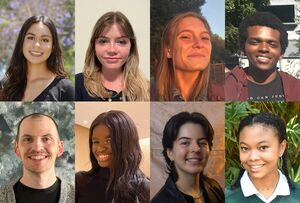
Sara Abrahamsson is a fourth-year student at UCLA studying Art History and French. As a culmination of her artistic and academic interest in political graphics, Sara is currently writing her senior thesis paper on the internationalist poster art of post-revolutionary Cuba. Upon graduating, she plans to continue working in museums before pursuing graduate studies in Art History or Art Conservation.
Amy Cabrales is a First-Generation fourth-year undergraduate student at UCLA, studying Sociology and the Russian Language. She is a Mexican-American, Los Angeles native born in Lynwood, California. Her career interests include cross-cultural education via museum work or language instruction and immigrant resettlement, while her academic interests include immigrant integration and self-identity across immigrant generations. She is anticipating returning to Almaty, Kazakhstan for the 2024-25 academic year to inform these interests and advance her Russian proficiency.
Elsa Coony is a fourth-year student at the University of California, Los Angeles double majoring in Global Studies and German. She has previously worked at the United States Holocaust Memorial Museum as both a docent and translator and is excited to join this year's council. In the future, she hopes to pursue a career in international development.
Biruke Dix is currently a 2nd year student at UCLA studying Applied Mathematics. He joined the Wende Student Council in 2024 and is deeply invested in the ever-changing properties of art as well as social habits. He hopes that he can create language and conversation that promotes the spread of cultural shifts and social justice.
Matthew Jones is a third-year PhD student in Claremont Graduate University’s Cultural Studies and Museum Studies program. His research currently explores how sites connected to authoritarian regimes function as pilgrimage destinations and what strategies states and institutions employ to reduce extremist attachment at these sites. He is thrilled to continue his training with the Wende Museum through this collaboration with the Thomas Mann House.
Emma Larson is a master's student at Columbia University's Harriman Institute of Russian, Eurasian, and Eastern European Studies. There, she focuses on the gender, social, and political history of Central Asia. Before starting at Columbia, Emma taught English in Kazakhstan with the Fulbright Program. She graduated from Williams College with degrees in History and Russian in 2021.
Zora Nelson is a current undergraduate student at New York University, where she is studying Harp Performance and Media, Culture, and Communication. As an east coaster born and raised in Philadelphia, Pennsylvania, she discovered the Wende Museum in the summer of 2022 and is honored to be a part of the council. With a passion for writing, Zora sees a future in storytelling to promote social justice.
Lexi Tooley is a current sophomore at the University of Pennsylvania majoring in Political Science and Art History, minoring in Chinese Language and Culture. She is originally from Los Angeles, California, and attended the Archer School for Girls. Lexi has been working with the Wende Museum for the past 2 years. She looks forward to continuing the search for truth and examining the vulnerability of democracy through this program!
Partner


Identity and Literature
Thomas Mann House (1550 N San Remo Dr, Pacific Palisades, CA 90272)

Info
Das Thomas Mann House Los Angeles lädt zu einem Gespräch zwischen den Autor*innen Julia Franck, Thomas Mann Fellow 2024, und Arnon Grunberg ein, moderiert von der bekannten Dichterin Lynne Thompson aus Los Angeles. Die preisgekrönten Autor*innen sprechen über Fragen der kulturellen Aneignung und Identität in der zeitgenössischen Belletristik und die Komplexität, die mit dem Schreiben von Figuren und Geschichten außerhalb des eigenen kulturellen und identitären Hintergrunds einhergeht.
*Diese Veranstaltung findet in englischer Sprache statt*
How can authors face the challenges of portraying experiences and cultures they have not personally lived, and the importance of avoiding stereotypical portrayals of their fictional characters? Do writers and their works bear responsibility for social conditions? To what extent do literature and literary writers negotiate moral convictions in their characters and stories? Does a writer have to act as a judge of good and evil and right and wrong through the choice of their character’s perspectives? The evening will provide valuable insights into how writers can navigate the delicate balance of respecting and honoring the identities of others while enriching their narratives with diverse perspectives.
Teilnehmer:innen
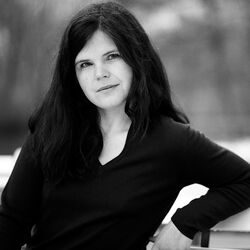
Julia Franck is an author based in Berlin. She studied philosophy, modern German literature, and Ancient American Studies at Freie Universität Berlin. Frank published her first novel, Der Neue Koch, in 1997. Her work has received numerous prizes and awards, including a residency at Villa Massimo in Rome in 2005 and the German Book Prize in 2007. Franck also writes essays on literature, film, and art and is a member of Exil-PEN and PEN Berlin, among others. In 2023 she took the position of editor for Die Andere Bibliothek. Her work has been translated into 40 languages to date. She is a 2024 Thomas Mann Fellow.
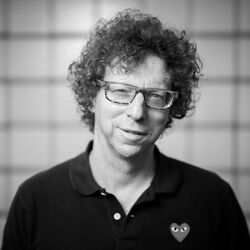
Arnon Grunberg is a Dutch novelist and reporter. After being kicked out of high school, he worked as assistant in a drugstore, as dishwasher, publisher, and playwright for an Amsterdam theater company. In 1994, at age of 23, he made his debut with the internationally acclaimed novel Blue Mondays which won him two awards: for the best and for the bestselling debut novel. Grunberg's work has been translated into thirty different languages. He writes reports, book reviews, columns and essays for Dutch media and regularly publishes essays and stories in literary magazine Hollands Maandblad. He has contributed to The New York Times, The Times of London, The Guardian, Süddeutsche Zeitung, Der Standard, Die Welt, Bookforum, among others.
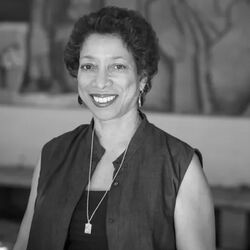
Lynne Thompson served as Los Angeles’ 4th Poet Laureate and received a Poet Laureate Fellowship from the Academy of American Poets. She is the author of four collections of poetry, Beg No Pardon, winner of the Perugia Press Prize and the Great Lakes Colleges New Writers Award; Start With A Small Guitar (What Books Press); Fretwork, winner of the 2019 Marsh Hawk Poetry Prize selected by Jane Hirshfield; and Blue on a Blue Palette, published by BOA Editions in April 2024. A Pushcart Prize and Best of the Net nominee, Thompson is the recipient of multiple awards including the George Drury Smith Award for Outstanding Achievement in Poetry, an Individual Artist Fellowship from the City of Los Angeles, the Tucson Literary Festival Poetry Prize, and the Steven Dunn Poetry Prize.
Exile and Archives in Literature and Music: Evening Reception and Conversation
Thomas Mann House (1550 N San Remo Dr, Pacific Palisades, CA 90272)

Info
Anlässlich des zweitägigen Workshops "Archives in / of Transit: Historical Perspectives from the 1930s to the Present" veranstaltet das Thomas Mann House einen Empfang, gefolgt von einer Diskussion über "Exil und Archive in Literatur und Musik“ mit den 2024 Thomas Mann Fellows und den Workshop-Teilnehmer:innen.
*Diese Veranstaltung findet in englischer Sprache statt*
The workshop "Archives in / of Transit: Historical Perspectives from the 1930s to the Present" explores new ways of thinking about archives, archival records, and other artifacts historians might use as primary sources to gain deeper insight into the history of migrants in transit and the knowledge they possessed, produced, transmitted, or lost. With a starting point in the history of Jewish migration from National Socialist-occupied areas, the workshop broadens out to investigate the experiences of refugees and migrants fleeing genocide, armed conflict, and persecution throughout the twentieth century. Specifically, it uses the idea of “lost knowledge” (Steinberg/Strobl) to ask how migrants who leave their homes try to convey both the sense of loss and the disorientation that accompany the navigation of new lived realities—from the geographical to the socio-cultural, political, and beyond—in correspondence or other materials that capture any aspect of their flight and migration.
The workshop is convened by the German Historical Institute Washington; USC Shoah Foundation; Holocaust Research Institute, Royal Holloway; University of London; Queen Mary, University of London; and the Wiener Holocaust Library, London. Partners of the event are USC Dornsife Center for Advanced Genocide Research; Thomas Mann House, Los Angeles; Villa Aurora, Los Angeles; and Feuchtwanger Memorial Library, University of Southern California, Los Angeles.
The full program of the closed workshop can be found here.
Partner
This event is convened by the German Historical Institute Washington; USC Shoah Foundation; Holocaust Research Institute, Royal Holloway; University of London; Queen Mary, University of London; Wiener Holocaust Library, London.




